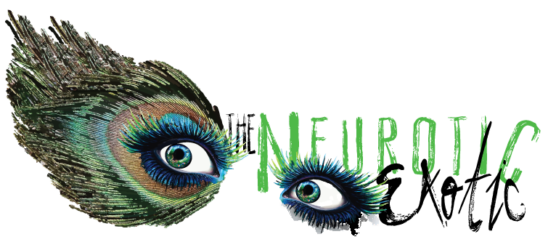New mothers everywhere are being talked to about post-partum depression (PPD) at every government-run meeting. We are told ad-nauseum to watch ourselves for signs of sadness that doesn’t dissipate with the baby blues. We are given stats and shown charts, but for a new mother who has never herself dealt with any of the 75 000 new issues arising out of just having the baby (let alone keeping it alive), much of this one-sided conversation can seem like another meeting that could have been an email, or, another appointment that could have been a nap.
Since mental illness of any kind is diverse in its presentation, it’s no surprise that the snapshot of ‘classic PPD’ that’s presented to new moms can miss the mark entirely. Often, it can be reduced to being presented as a nagging discomfort, instead of a relentless onslaught of symptoms that she feels helpless to combat.
We are aware, of course, that the topic can feel like unnecessary fear mongering to a happy mother of a thriving newborn, and it kind of kills the vibe at mommy class. For a new mom who struggles, though, a bit more honest perspective might be welcomed. So, in the interest of supporting the needs of the few, the following outlines what I wish I had known before PPD hit me like a bat out of hell.
1. You May Not Be the Best Person to Judge Your ‘State’
After all, we have no barometer for what being a new mom should feel like other than what we glean from other women leading up to the birth, which can be summarized as “it will be the hardest thing you ever do”. We kind of get contradicting messages, don’t we? It should be the hardest thing, but also not too hard. How hard is too hard? And if you ask your husband, like you, he’s likely too close to the issue to be objective.
If you tend to be a relentless perfectionist who is hard on herself, you’re at risk of letting this thing go too far for too long. If you, like me, like to yell from across the canyon at your rescue crew ‘I got this’ while clinging to the edge by your last two available fingers, you would be best to talk to a friend or relative before you diagnose yourself as weak, instead of depressed.
2. Your Doctor Might Not Be As Willing to Help as You’d Hoped.
Patricia Tomasi of the Huffington Post writes “…when [mothers] turn to the medical system for help for one of the most common postpartum complications, the onus is thrown back on them to figure their way out of postpartum depression while they’re in the middle of a crisis…”. She’s right.
I talked to my post-partum “care team” until I was blue in the face about the fact that things were not feeling right for me since about day 3 of being a mom. I knew early on that some of the stuff I was experiencing wasn’t run-of-the-mill. Still, they continued to tell me that the first six weeks these things could be considered normal, which turned out to be a self-fulfilling prophecy because by the sixth week I had stopped bringing it up. I normalized it in order to cope. It wasn’t until I could scarcely function that a psychologist heard me when I said something is wrong. 11 months later and $500 into therapy.
3. You May Need to Doctor-shop
The thing that we sometimes forget about doctors is that they are people just like us. They have areas they are more passionate about than others, and they have beliefs (inherent from culture, society, religion or just in their character) that can sometimes interfere with their prioritizing of concerns. In my case, going to my family doctor who presented with the common trifecta of being a) not a parent b) not a woman and c) a trembling circus clown where it came to women’s issues, did not elicit the results I was looking for.
This doctor was admittedly not confident in prescribing antidepressants safely to breastfeeding mothers, but was also too arrogant to refer me to someone who could. I was given tranquilizers to put me to sleep, and a google maps printed info sheet on a publicly funded drop-off daycare for mothers in detox programs, when my mother pressed him as-to whom, in his opinion, would watch my child while I doped myself into a coma? Seriously.
I am of the opinion that we prioritize the needs of the child to the detriment of the well-being of the mother (as if they are somehow unrelated issues). It’s so hard to advocate for yourself when you’re overwhelmed, so make lists of your concerns and bring them to the doctor. The rules are that you discuss each one before you leave, and if their answer leaves you feeling more desperate, find yourself another doctor.
4. You Might Forget You’re Sad Because You’re So Angry
It can be hard to see which one comes first when your world is upside-down, but in my case sadness came much later to the party (once I had expended every ounce of energy I had being angry). I woke up angry, I went to sleep angry, I dreamed about punishing my husband (just for being alive, I think). Things that should have been sideline concerns received responses of biblical proportions from me. I felt like a tantruming toddler with big-girl problems. I didn’t have time to be sad.
5. Apocalypse Now
The term Sundowning has been used to describe a change in behavior in dementia patients which correlates with the sun setting each day. I had severe sundown symptoms. Where a dementia patient’s confusion and/or tremors might be increased, my anxiety would rise as the sun went down from a level that was an impairment to a level that was debilitating. I found myself curled up in a ball on the couch, in uncontrolled sobs, feeling like apocalypse was nigh. Night time terrified me for more reasons than I could verbalize.
6. Other Factors May Distort Your Perception of What’s Happening
There’s a lot going on when you’ve just had a baby. I wasn’t feeling good but there were bigger issues at hand. My son had an emergency surgery at 2 weeks, and started showing signs of food allergy in the 3rd. He screamed 10ish hours of the day and only slept in 20-minute increments. It can be difficult to label yourself clinically afflicted when your circumstances could make even the most Theresa-of-Mothers want to light themselves on fire.
Trouble nursing, incessant night wakings and the onslaught of other concerns that invade your psyche after having a child (both real and imagined) can blur your understanding of what you’re experiencing. You might like thinking that you’re superhuman, but if the moment someone hugs you and asks if you’re okay you deteriorate into a sobbing ball of incoherence… there’s your sign.
7. Every Task Can Feel Insurmountable
I recall feeling that absolutely everything was just too much. I walked around like I was freshly traumatized everywhere I went, and little accomplishments were unavailable to me. Eating was too much to ask, let alone preparing it. Getting my kid vaccinated by myself was inconceivable. And I remember, with some frequency, sitting on the floor looking up at a counter full of dishes and knowing that I needed to do them without the slightest idea how.
8. You Might be Faking-it Too Well
I don’t think this can be overemphasized, perfectionist mamas. Some of us can put on a performance that could make any crowd believe we are functioning somewhere in the vicinity of normal. My state of mind was very poor when left to its own devices, so staying around people is what kept me going. It didn’t matter who, and it didn’t matter where. Some of the places I felt best was when I was at the doctor’s office and someone else was home holding my screaming baby. In those offices I would find a smile and some composure, and often forfeit any hope for helpful intervention as a result. It wasn’t until a psychiatrist and 5 of his minions looked at me from across a table and said “but look at you, you present so well. We’ve even had some laughs!” that I realized what all the doctors had been thinking all along. “Of course I look well here,” I said, annoyed. “I’m around people and someone else is looking after my baby so I can pretend to be someone else for 3 hours”. With that, they handed over the Zoloft that would give me my life back.
9. Thoughts of Self Harm Might Not Be on Your Radar
You’ve got a song stuck in your head. Only it isn’t a song. It’s a thought or an image that won’t go away. It might come once in a while, and other times it might be the only thing you can think for hours. It could be unfounded worry about your baby’s wellbeing. It might be something someone said. But it wont leave and it comes with emotions that make it hard to follow conversations or remember basic things. You might feel like everyone would be better off if you left. All of this is bad, but none of it is “thoughts of self-harm or of harming your child”. This is important because asking about thoughts of self-harm, without asking if you’ve ever wished you could be hit by a bus are two sides of the same very relevant coin.
10. Medication is Not a Life Sentence
Part of being a new mom is wanting to do things right. It’s a job we take seriously, and deservedly so! So, when things aren’t going well, we look to the least intrusive mechanism for relief, and it’s no wonder. We are so very lucky to live at a time where we have access to all manner of alternative medicine! Tinctures, reiki, cognitive therapies, acupuncture and naturopaths – I tried them all, and they’re a great first-line option. The reality of this thing, though, is that sometimes the circumstances are too rootbound for anything to help but a hard reset. (And I would have had to remortgage my house to afford the continued regimen of appointments, all of which were falling short of providing an answer).
When what you’re doing isn’t working, give yourself the space to try something new. And if one medication doesn’t work for you, try another. Something will work. There is a world on the other side of PPD where you wake up excited to see your baby’s face, and maybe even your husband’s! It’s hard to believe it, but medication can turn enemies into friends – and your marriage, or your partnership, deserves it. It can be hard to remember what it feels like to be content, when you are deep in the dark. If, at a certain point, it becomes clear that the monkey on your back isn’t going away without a fight, don’t put yourself in the position of looking back to see that you were robbed of all that time that you could have spent being more active in your child’s life and in your own. You won’t realize how bad you felt, until you feel better. And these interventions aren’t forever, they are there for as long as it works for you and your family. You do what you need to do to move on.
Give Up (Just a Little)
For many of us, motherhood presents itself as the first arena in which we aren’t fully in charge of the outcome. We know this stuff is common, but we still cower to the stigma because we think if we try harder we can claw life back within our control. Giving up white-knuckled control of motherhood allows room to embrace the vastness of the mothering experience. It allows you to give yourself, and other moms with other struggles, a break. You become a safe zone for women to talk about what’s really going on, and you begin to lead with a strong sense of compassion for yourself and others.
The friendships that I’ve fostered in the wake of my experience with PPD have been soul enriching and lasting. We celebrate each other. We look out for each other. We bring dinner when dinner is needed, we pick each other up after long ugly cries, and we help wherever we can help – because it’s okay to need it.
We aren’t superheroes and we aren’t meant to be. Our struggles tend toward similar issues of varying degrees and should inspire us to accept ourselves when we’re up and when we’re down, without the judgment that keeps us too stuck to move forward.



I love this article it shines a light on an issue that people avoid. It reassures us that life can be great again!
Linda, so glad you enjoyed the article. Life can be great again – so true! The more we talk about this stuff, the better we will get at identifying and treating it.
May I just say what a comfort to uncover an individual who truly understands what they are talking about on the internet. You definitely realize how to bring an issue to light and make it important. More and more people have to read this and understand this side of the story. I was surprised that you are not more popular since you certainly possess the gift.